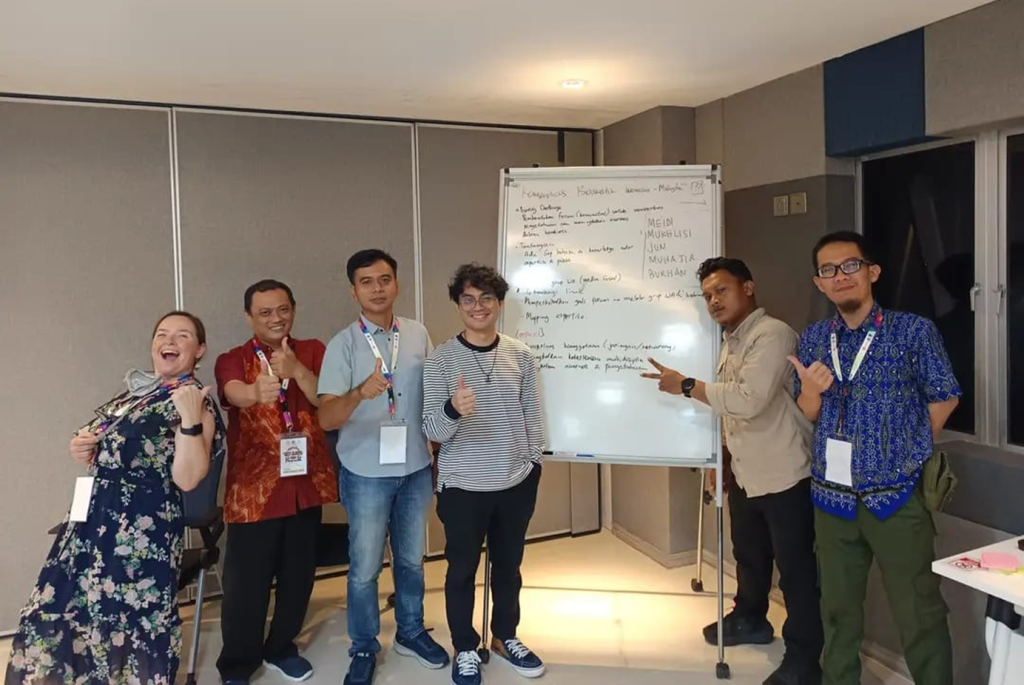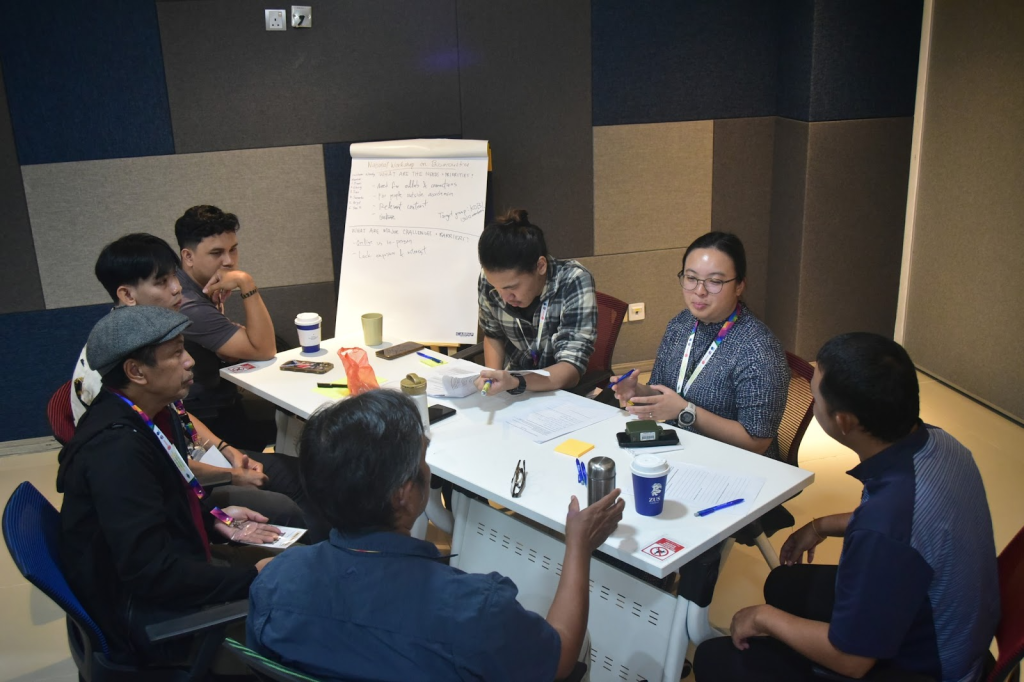Terengganu, Malaysia – At the end of May 2025, the Suara Rimba Nusantara team participated in the Symposium for Indonesia-Malaysia BioAcoustics (SIMBA), organized by the K. Lisa Yang Center for Conservation Bioacoustics at Universiti Malaysia Terengganu. This event brought together researchers who had participated in the Bioacoustics Equipment and Training (BEAT) program from 2022 to the present, along with additional researchers who shared their experiences in utilizing bioacoustics for conservation programs. Bioacoustics remains in the developmental stage in Indonesia and Malaysia, making this symposium an important platform for discussions and building connections among researchers from various locations to enhance conservation efforts using bioacoustics.

Contributions from Suara Rimba Members
During the scientific presentations session, two members of the Suara Rimba team shared their research findings from Central Kalimantan. Ebrry Dwi Putra (Bioacoustics Program Coordinator in Mungku Baru) presented findings on the vocal behavior and spatio-temporal distribution of the Bonaparte's Nightjar (Caprimulgus concretus), while Indah Sartika Sari (Foundation Secretary) presented a study on the spatio-temporal patterns of the Bornean Bristlehead (Pityriasis gymnocephala). These studies were part of a collaboration among various parties at KHDTK Mungku Baru in Central Kalimantan, including the Borneo Nature Foundation, Universitas Muhammadiyah Palangkaraya, and the K. Lisa Yang Center for Conservation Bioacoustics at the Cornell Lab of Ornithology.


In addition to the presentations, Indah and Rustam (Foundation Founder) also participated in a panel discussion on the advancement of technology and its role in local communities. This discussion highlighted the importance of involving local communities in research and technology-based conservation processes while recognizing the value of local knowledge as a critical component of sustainable and contextual solutions.


Workshop: Designing Bioacoustics Action Plans
SIMBA also hosted a workshop focusing on crafting strategic action plans to strengthen bioacoustics in Indonesia and Malaysia. Through a voting process, participants selected six main topics:
- Bioacoustics guide for beginners
- National bioacoustics training series
- Indonesia-Malaysia bioacoustics community
- Bioacoustics books for children
- Interactive platform with bioacoustics topics
- Data management and analysis for conservation




The six priority topics were discussed in groups and each presented concrete action plans for the upcoming year. Participants emphasized the importance of sustaining bioacoustic education, beginning with children. At the same time, they also identified challenges such as funding limitations, language barriers in reference materials and tools, along with technical, managerial, and social obstacles.
The shared ideas led to potential solutions, such as recruiting professional trainers and community facilitators, creating interactive platforms, establishing local trainers, developing guidebooks, and preparing proposals for collaborative efforts and fundraising. Moreover, the Suara Rimba team—represented by Rustam, Indah, and Nova—took the initiative to collaborate on writing scientific articles and digital books aimed at academic references and university teaching materials. This initiative reflects a progressive collaborative spirit and serves as a strategic step toward enhancing national capacities in bioacoustics. With the spirit of "listening to nature to better understand it," participation in SIMBA serves as an important milestone in consolidating bioacoustic advancements.

Future Collaborations
Suara Rimba Nusantara's active engagement in SIMBA highlights the foundation's commitment to promoting conservation based on knowledge and technology while fostering synergy between researchers, practitioners, and communities. This involvement also holds a vision for building sustainable collaborative conservation programs that positively impact environmental preservation efforts. Remember, there are still countless secrets of nature waiting to be discovered—some are elusive to the eye but resonate through sound! With bioacoustics, let's dig deeper into nature's messages for us.

